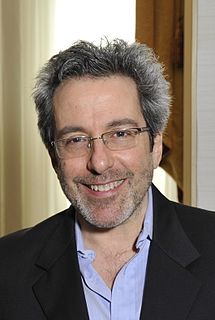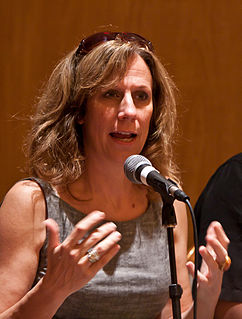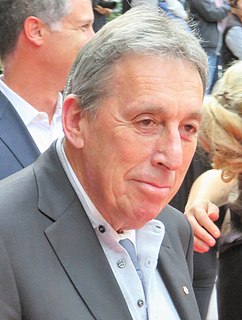A Quote by Jonathan Ive
I’m always focussed on the actual work, and I think that’s a much more succinct way to describe what you care about than any speech I could ever make.
Related Quotes
I think we're going to care more about Americans than Africans. I don't think that's ever going to go away, and I don't think it's ever going to go away that people care more about their families than strangers, and their communities over other communities. But I think it would transform the world in such a good way if we could just acknowledge, at least intellectually, that an African life and an American life are the same.
It's more important than ever to define yourself in terms of what you stand for rather than what you make, because what you make is going to become outmoded faster than it has at any time in the past. ...hang on to the idea of who you are as a company, and focus not on what you do, but on what you could do. By being really clear about what you stand for and why you exist, you can see what you could do with a much more open mind. You enhance your ability to adapt to change.
I usually base my characters on composites of people I know. One trumpet player in SIDE MAN is really a mix of four different guys I knew growing up. Patsy , the waitress, is a mix of about three different people. I like doing it that way. I start with the characters, as opposed to plot, location, or some visual element. I write more by ear than by eye. I always work on the different sound of each character, trying to make sure each has a specific voice and speech pattern, which some writers could care less about.
In China, your freedom is always limited, but this limitation applies to almost everyone. If someone does injustice to you, though, you have to find a way to avenge yourself - even by illegal measures. In a sense, injustice is more personal. This idea has always been in Chinese history. I think we read about freedom of speech, or lack of freedom of speech, in China so often. But I don't think people here in America think about how justice, or the idea of justice, is so important in a Chinese setting. It's probably more important than freedom of speech in the Chinese mindset at this moment.
Probably I have more phobias, fear and eccentricities than I would care to admit. I don't think I'm in danger of losing my mind, but I do often question my own behavior. I have a very bad temper, and it's not always healthy for me and for others. I make my way in the world more difficult, and I could do with a little more yoga.
I think everyone is always asking themselves, How is my work meaningful, how is my life meaningful? As I get older, I feel like who I am as a person and a citizen is more important than who I am in my work. But I do think it reframed slightly for me, how much I have to care about a project in order to want to do it. Sometimes, obviously, you have a take a job for money. But I think I'm quicker now when I get a script that's, say, borderline misogynist, I'm not going to go in for it. I'm thinking more about what I'm putting into the world.
There's been an amazing backlash for the last decade in America: political correctness. In many ways, I think that, while we've been remarkably violent in our media, there's been a real schizophrenia. In private, on the Internet, and on public-affairs shows or talk radio, we're way more explicit than we've ever been. But traditional Hollywood has been much more frightened than it ever was in the '70s about presenting things that could be perceived as politically incorrect.
More than anything, the journal wanted. It wanted more than it could hold, more than words could describe, more than diagrams could illustrate. Longing burst from the pages, in every frantic line and every hectic sketch and every dark-printed definition. There was something pained and melancholy about it.






































